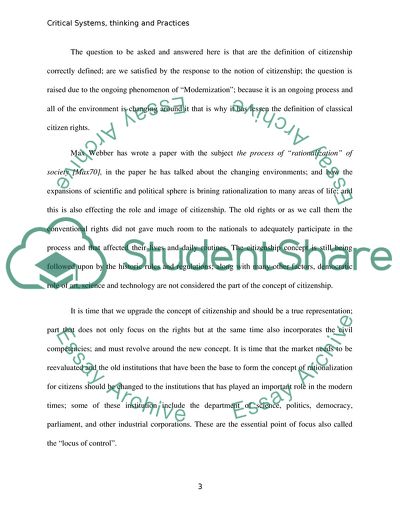Cite this document
(Critical Systems, Thinking and Practices Report Example | Topics and Well Written Essays - 4500 words, n.d.)
Critical Systems, Thinking and Practices Report Example | Topics and Well Written Essays - 4500 words. https://studentshare.org/social-science/1830605-critical-systems-thinking-and-practice
Critical Systems, Thinking and Practices Report Example | Topics and Well Written Essays - 4500 words. https://studentshare.org/social-science/1830605-critical-systems-thinking-and-practice
(Critical Systems, Thinking and Practices Report Example | Topics and Well Written Essays - 4500 Words)
Critical Systems, Thinking and Practices Report Example | Topics and Well Written Essays - 4500 Words. https://studentshare.org/social-science/1830605-critical-systems-thinking-and-practice.
Critical Systems, Thinking and Practices Report Example | Topics and Well Written Essays - 4500 Words. https://studentshare.org/social-science/1830605-critical-systems-thinking-and-practice.
“Critical Systems, Thinking and Practices Report Example | Topics and Well Written Essays - 4500 Words”. https://studentshare.org/social-science/1830605-critical-systems-thinking-and-practice.


